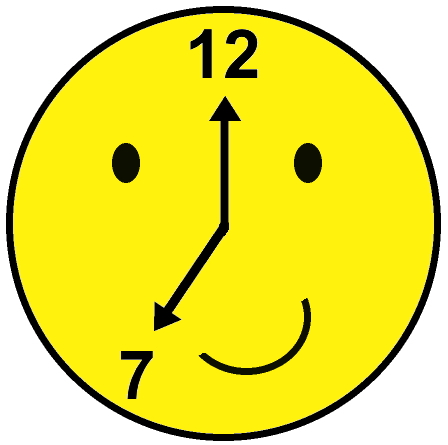Hello ^^
Yesterday I blogged because I couldn't focus on studying, I did manage to study in the end so I decided to share some study methods :)
Studying is essential for every student - unless you do like design, then it's more about the inspirations and project work - and if we don't study, there will only be one outcome: fail. Unless you’re a genius. But not everyone is that special :(
Personally, I find that it’s very difficult to get into the studying mood because there will always be something to distract me – TV, laptop, ipad, phone, eating, going out, reading. Basically anything that means I don’t need to revise, and that also means a last minute cramming session the night before.
The equation is simple:
Distractions = No revision = Last minute cramming = FAIL
Unfortunately, failing means no degree at the end so we all have to study.
So here are some ways that I find helpful (you’ve probably already heard of them but I find they work for me) -
1. Study desk
 Many people will think this is redundant but having a specific study area will allow you to get into that studying mood quickly. Psychologically, your mind will know that if when you’re sitting at that table you want to study and the need to find distractions disappears. Having a study table also means that studying is much easier because all the books and information you need will be at that one place and you don’t have to roam around the house searching for study materials.
Many people will think this is redundant but having a specific study area will allow you to get into that studying mood quickly. Psychologically, your mind will know that if when you’re sitting at that table you want to study and the need to find distractions disappears. Having a study table also means that studying is much easier because all the books and information you need will be at that one place and you don’t have to roam around the house searching for study materials.
When prepping a permanent study desk, make sure to stock up on stationary. You’ll need:
· Pens
· Notebooks
· Highlighters
· Ruler
· Post-its
· Correction Tape
2. Take regular breaks.
 I know people who can study for 5/6 hours at a time but that simply has no effect on me. I’ll just end up being extremely bored, reading the same page over and over again and day-dreaming. I’ve read an article before which says that you should study for an hour at the most each time and take a short break before resuming. Personally I feel that studying for 45 minutes and taking a 15-minute break is the best combo. That way, the material that you just went through will have an opportunity to sink in before you start another topic/chapter/subject.
I know people who can study for 5/6 hours at a time but that simply has no effect on me. I’ll just end up being extremely bored, reading the same page over and over again and day-dreaming. I’ve read an article before which says that you should study for an hour at the most each time and take a short break before resuming. Personally I feel that studying for 45 minutes and taking a 15-minute break is the best combo. That way, the material that you just went through will have an opportunity to sink in before you start another topic/chapter/subject.
So what do you do in your break? Go to the toilet, have some snacks, reply to texts, watch some television (not recommended) stare at scenery, do some exercises; the list goes on and on. Watching TV isn’t recommended as there’s a chance of wanting to watch more and not go back to studying. But watching TV as a reward after the studying spree is supported!
3. Have a study plan
Always plan out what to study before studying. Not during, but before. Knowing what the study plan of the day is will make things a lot easier. It means you don’t have to spend time planning what to study and creating an opportunity to be distracted. The best study plan is to not jump between subjects but to do one before moving on. And have a longer break between subjects to allow your brain to process the previous material before moving on.
Planning is good. Those with a plan will succeed.
4. Draw/Print diagrams.
 “A picture says a thousand words” – so use pictures to help you remember! Writing pages of words will mean nothing if you can’t picture what you need to learn! So draw a picture or graph or flow chart instead of wasting pages writing words and never looking back at them because it’s just blah. Pictures also mean more colour which is much more interesting than just words and will stimulate learning.
“A picture says a thousand words” – so use pictures to help you remember! Writing pages of words will mean nothing if you can’t picture what you need to learn! So draw a picture or graph or flow chart instead of wasting pages writing words and never looking back at them because it’s just blah. Pictures also mean more colour which is much more interesting than just words and will stimulate learning.5. Start early
 Everyone knows that a last minute cramming session will not help, but why do they still do it? Laziness is usually the answer. The way to be successful is to have a plan and stick to it. Ever heard of the “read today, tomorrow, next week, next month” concept? It works. So if you start revising at the start of the year or the start of term, then by the time exam rolls over, you will be well prepared and have a high chance of getting excellent marks :D
Everyone knows that a last minute cramming session will not help, but why do they still do it? Laziness is usually the answer. The way to be successful is to have a plan and stick to it. Ever heard of the “read today, tomorrow, next week, next month” concept? It works. So if you start revising at the start of the year or the start of term, then by the time exam rolls over, you will be well prepared and have a high chance of getting excellent marks :D
Also, studying maths early is more effective!
Okay that’s all I have for tips~ if I ever think of anything new I will add to the list, or maybe
do another blog post!
Bye bye!


No comments:
Post a Comment